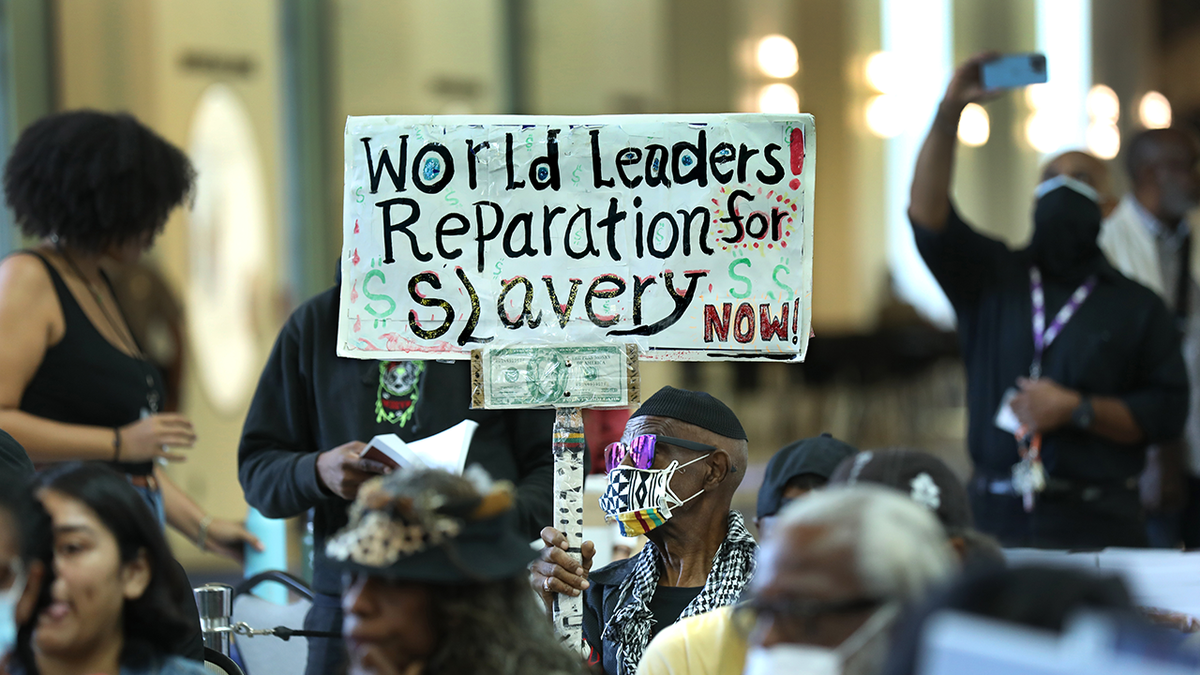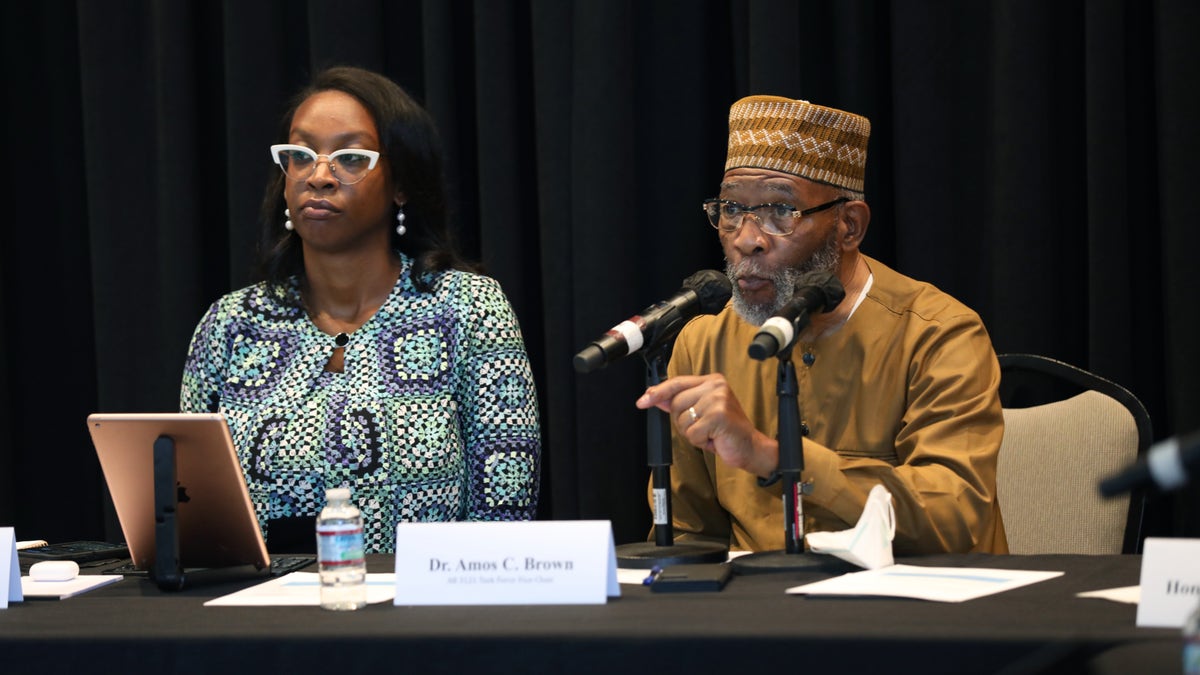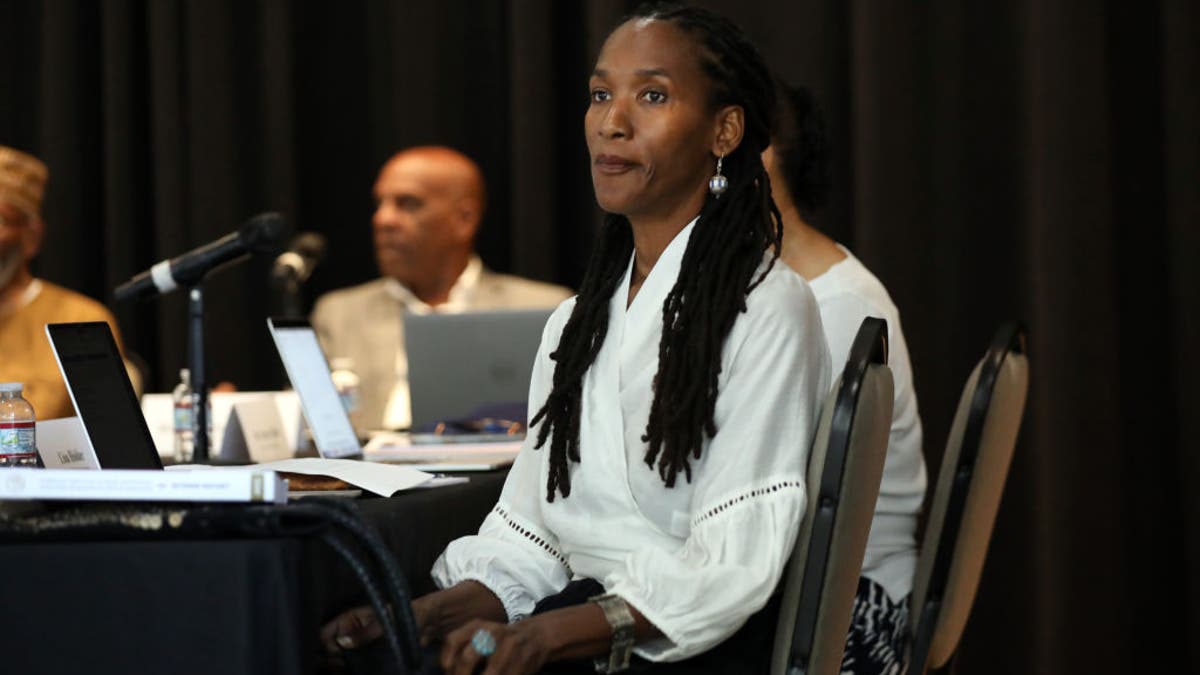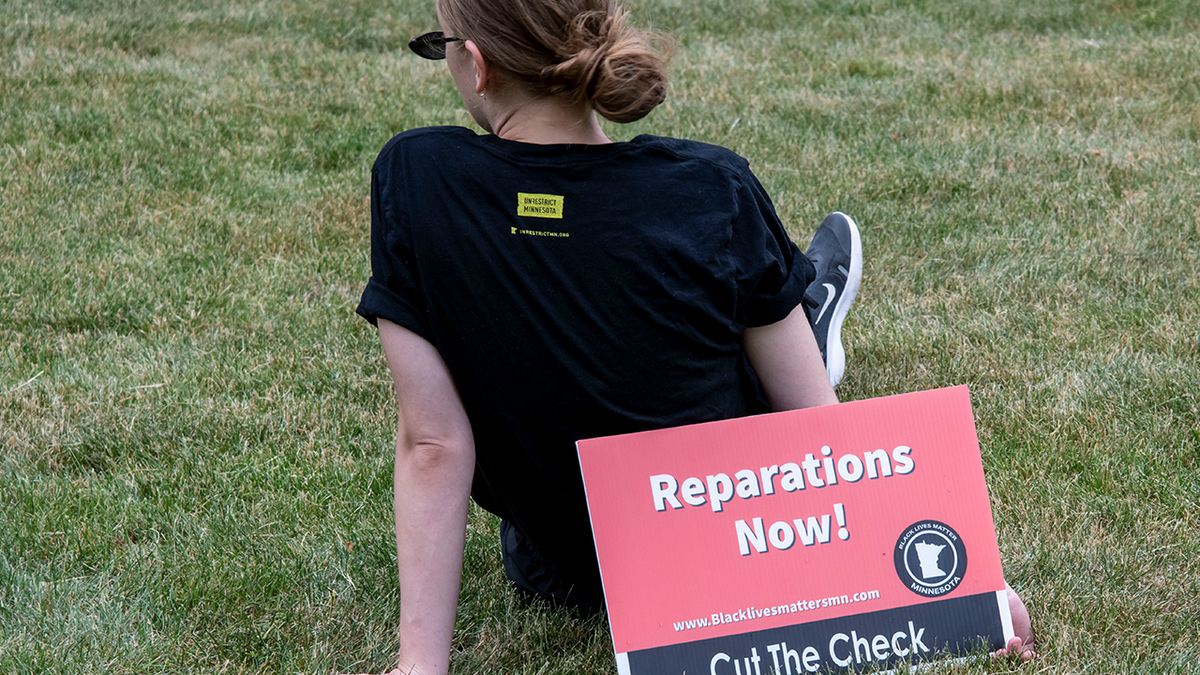California reparations task force meeting gets chaotic, activists call for higher payments
The California Reparations Task Force descended into chaos at points May 6 during public comments on the board's proposed reparations for slavery.
The California Reparations Task Force, a committee created by legislation signed by Gov. Gavin Newsom, formally recommended that the state legislature repeal a constitutional amendment that prohibits the government from discriminating against, or granting preferential treatment to, someone based on their race.
Last weekend, the task force formally approved its final recommendations to the California Legislature, which will then decide whether to implement the measures and send them to the governor's desk to be signed into law.
Much of the public's attention has been focused on the price tag of the committee's proposed reparations to make amends for slavery and anti-Black racism. However, several aspects of the committee's recommendations, which are outlined in hundreds of pages of documents, have received little attention, including a proposal to repeal Proposition 209.
California voters passed Proposition 209, now enshrined in California's constitution, in 1996. The measure amended the California Constitution, adding a section that states in part, "The state shall not discriminate against, or grant preferential treatment to, any individual or group on the basis of race, sex, color, ethnicity, or national origin in the operation of public employment, public education, or public contracting."

Los Angeles long-time resident, Walter Foster, age 80, holds up a sign as the Reparations Task Force meets to hear public input on reparations at the California Science Center in Los Angeles on Sept. 22, 2022. (Carolyn Cole / Los Angeles Times via Getty Images)
CALIFORNIA REPARATIONS COMMITTEE CALLS FOR ENDING CASH BAIL, NO LONGER PROSECUTING LOW-LEVEL CRIMES
The California Supreme Court said in a case from 2000 that, in the context of Proposition 209, discrimination means "to make distinctions in treatment; show partiality (in favor of) or prejudice (against)" and preferential means "a giving of priority or advantage to one person ... over others."
Proposition 209 is largely known for banning affirmative action but effectively outlawed racial discrimination in California outright. Repealing it would appear to allow discrimination as the court defined it.
Nonetheless, the task force wants to get rid of the measure, arguing it is actually created more racial discrimination.
"Since its passage, Proposition 209 has had far-reaching impact on efforts to remediate entrenched systemic anti-Black bias and discrimination," the task force writes in a final report outlining its proposals. "In recognition of the systemic discrimination faced by the African American community and the barriers to justice and repair imposed by Proposition 209, the task force recommends that the legislature take steps within its authority to seek the repeal [of] Proposition 209. This effort must continue until California's constitution has been cleansed of this or any other measure rooted in racism."

Kamilah Moore, chair of the California Reparations Task Force, left, and Amos Brown, vice chair, at the California Science Center in Los Angeles on Sept. 22, 2022. (Carolyn Cole / Los Angeles Times via Getty Images)
CALIFORNIA REPARATIONS COMMITTEE CALLS FOR MANDATORY 'ANTI-BIAS' TRAINING TO GRADUATE MEDICAL SCHOOL
The task force highlights a study commissioned by the far-left Equal Justice Society, an organization of which a task force member is president, that concluded between $1 billion and $1.1 billion in contract dollars were lost annually by businesses owned by women and people of color due to Proposition 209. The task force's report also argued admissions declined for Black applicants "at every campus."
According to UCLA law professor Richard Sander, however, the number of Black graduates from the University of California had risen 70% above pre-Proposition 209 levels by 2017. That same year, he wrote, the number of STEM graduates rose from an annual average of around 200 before Proposition 209 to 510. The figure increased to 558 in 2018.
It is unclear how repealing a measure that bars discrimination or preferential treatment based on race would help combat racial discrimination.
One possible explanation relates to legality.

Lisa Holder, a member of the California Reparations Task Force, at the California Science Center in Los Angeles on Sept. 22, 2022. (Los Angeles Times/Getty Images)
CALIFORNIA REPARATIONS PANEL APPROVES PAYMENTS OF UP TO $1.2 MILLION TO EVERY BLACK RESIDENT
Many of the task force's proposals are explicitly race-based to make distinctions in favor of Black Californians as a way to make amends for slavery and subsequent racism. With that in mind, critics of reparations have argued Proposition 209 could present a legal hurdle for their proposals.
For example, San Francisco resident Richie Greenberg, who founded the successful movement to recall the city's former District Attorney Chesa Boudin, has argued that large-scale reparations would violate not only Proposition 209 but also the 14th Amendment to the U.S. Constitution.
Ward Connerly, the leading Black voice supporting Proposition 209, has expressed similar sentiments.
"It is [Proposition] 209 that will prevent our legislature and governor from doing something so ridiculous as to compensate some of us based on the color of our skin or being the ancestors of slaves," he tweeted last year.
Connerly served as president of the California Civil Rights Initiative Campaign in the 1990s and is now founder and president of the American Civil Rights Institute.

March and rally for reparations, child protection, and advancement of people's rights, June 17, 2021 in St. Paul, Minnesota. (Photo by Michael Siluk/UCG/Universal Images Group via Getty Images)
ACTIVISTS DEMAND HIGHER PAYMENTS FROM CALIFORNIA REPARATIONS TASK FORCE: '$200 MILLION' PER PERSON
The task force didn't respond to a request for comment for this story. However, the committee appeared to acknowledge the potential legal hurdle that Proposition 209 presents in its report, writing, "More broadly, Proposition 209 is widely viewed as an impediment to the adoption of remedial measures. The chilling effect has been far-reaching."
This is not the first effort to repeal Proposition 209. In 2020, Proposition 16 appeared on the general election ballot asking California voters to amend the California Constitution to repeal Proposition 209.
Proposition 16 failed, with 57% of voters saying they want to keep Proposition 209, which still remains in effect.
CLICK HERE TO GET THE FOX NEWS APP
"In other words, a majority of California voters wanted to keep Prop 209 in place, maintaining the constitutional ban on the state engaging in race-based discrimination or preferential treatment," Sheridan Swanson, research manager at the California Policy Center, wrote recently of the 2020 vote.












































